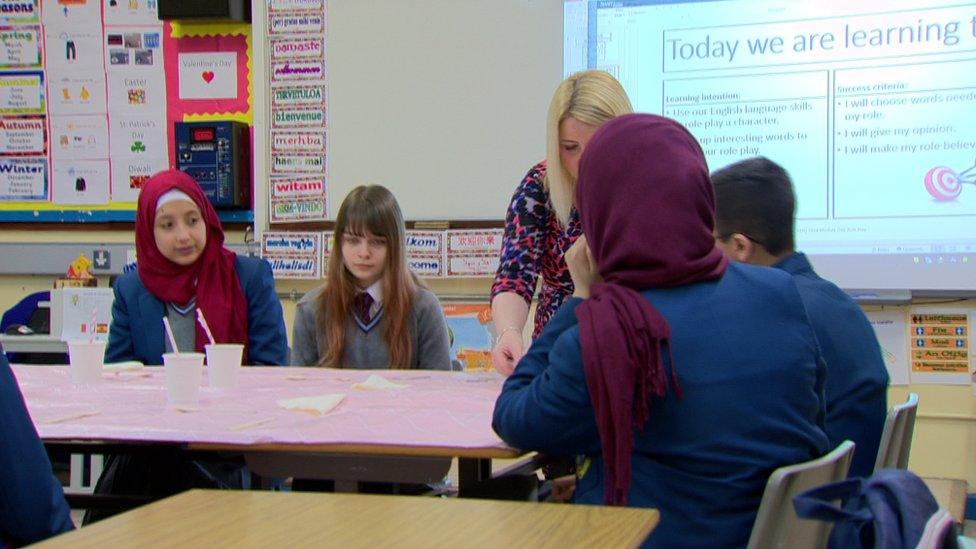'No political will' to deliver for Northern Ireland's ethnic minorities
- Published
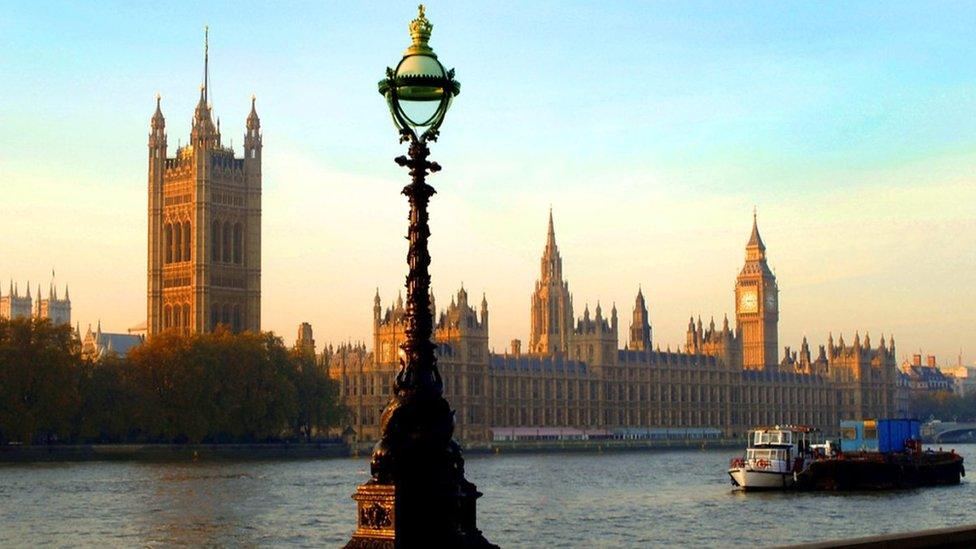
The report was issued by the Northern Ireland Affairs Committee at Westminster
There is no political will in Northern Ireland to deliver for minority ethnic people, a councillor has said.
SDLP councillor Lilian Seenoi-Barr was speaking after the Northern Ireland Affairs Committee issued a report into the experiences of minority groups and refugees.
It said the communities were "still too often an afterthought".
It warned the issues must be addressed given the potential arrival of Afghan and Ukrainian refugees.
Ms Seenoi-Barr, who is programme manager at the North-West Migrants Forum, called for Westminster to intervene directly to address the issues.
"We've been waiting for the last 20 years to get a refugee policy strategy which will provide a plan on how to intervene, but this has not been delivered," she told Good Morning Ulster.
"There's just no political will here to deliver for minority ethnic people.
"We don't have representation, the voices of minority ethnic people are not being heard."
'Invisible to policymakers'
Ms Seenoi-Barr said the focus on issues affecting unionist and nationalist communities had made minority ethic people "invisible" to policymakers.
"Sectarianism and racism are one in the same thing, they have to be tackled together for minority ethnic people to ever be heard in this community," she added.
More than 1,800 Syrians have been resettled in Northern Ireland under the Syrian Vulnerable Persons Resettlement Scheme since 2015.
MPs on the committee heard that cultural concerns and scarce language services made it difficult for refugees, especially outside Belfast.
This was particularly the case for those trying to access healthcare without language support and cultural understanding.
The report also said a lack of representation meant the views and contributions of minority communities were not heard.
It explored experiences of the Irish Traveller community, and said they continued to encounter "many persistent inequalities" in areas such as education, healthcare and housing.
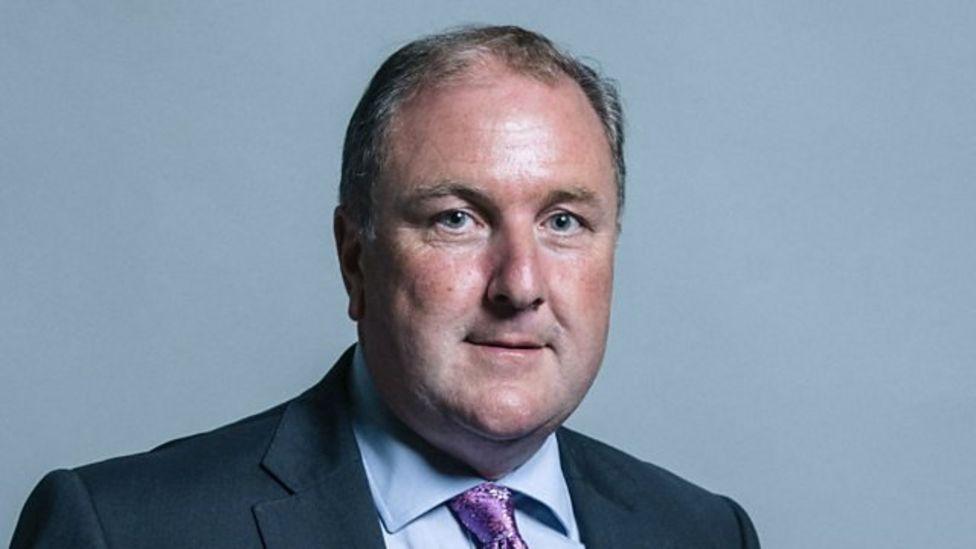
Conservative MP Simon Hoare is the chair of the Northern Ireland Affairs committee
MPs on the committee criticised the "very low" level of ethnic monitoring in the report, with some witnesses to the inquiry saying that they are still relying on 2011 census data.
An example of that was the statistic that 1% of Irish Travellers lived to the age of 65 a decade ago, with no more recent statistics to determine whether health outcomes had improved.
Caroline Coleman, of the Craigavon Travellers Support Committee, said there was "apathy around Travellers, there's a lack of policy, lack of leadership".
"Government departments cannot determine the needs, they can't demonstrate a clear understanding of where and how these inequalities exist, they don't know where to target resources where they're needed most," she said.
"That lack of information then means there's no good, strong, robust policy and practice and a lot of what's happening is piecemeal."
She said while she welcomed the Westminster report, the issues raised were not new and recommendations made in the past had "fallen on deaf ears".
Orange and green
The committee's chairman, Simon Hoare, said there was "more colour in Northern Ireland than just orange and green".
"Very often funding and policy and initiatives are funnelled down those two paths and there is a growing population that don't identify with either of those two traditions, who are new to Northern Ireland and are working hard and are integrated into society," he said.
"They have an obligation to step up and get involved in public life, and the political parties and civic society need to do more to welcome them and engage them.
"There's the feeling that a lot of good work is being done but it's being done to communities rather than with and for them."
The committee described the absence of accurate ethnic monitoring data as "lamentable".
It also called for a final refugee integration strategy to be published.
None of the 90 MLAs in the current Northern Ireland Assembly are from a minority ethnic background, the report added.
The responsibility for minority and ethnic community issues lies with Stormont's Executive Office.
However, there is not currently a first or deputy first minister in place to respond to the report, after the DUP withdrew Paul Givan from office last month in protest against the Northern Ireland Protocol.
- Published8 March 2022
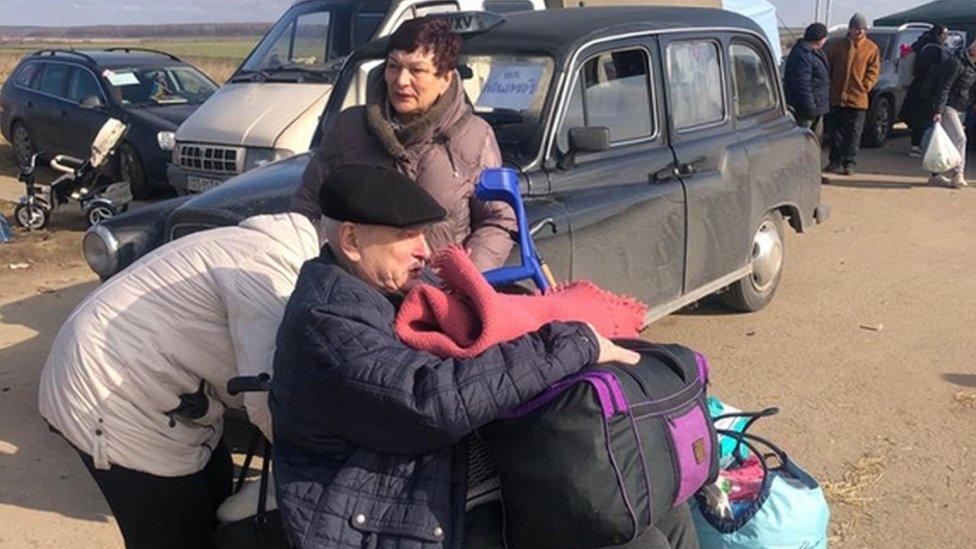
- Published19 April 2021
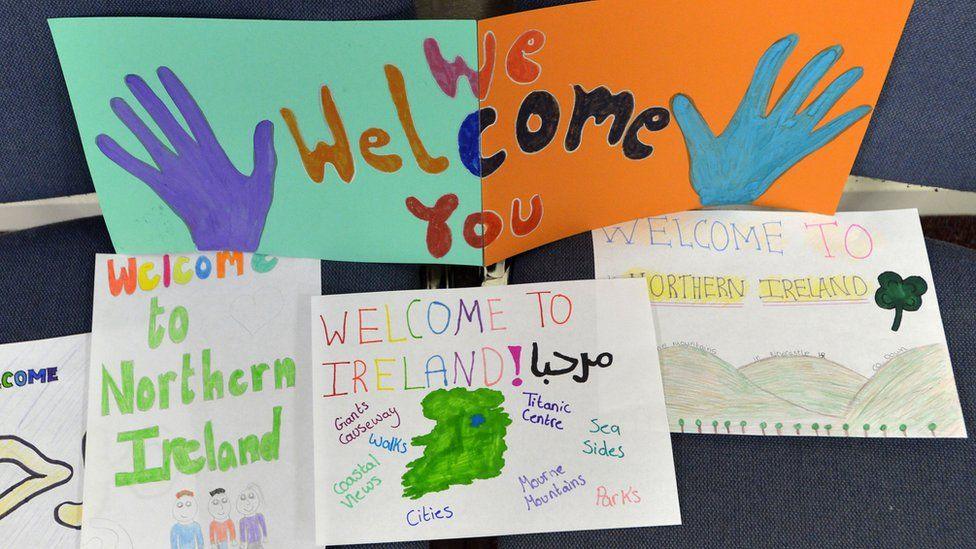
- Published12 November 2019
